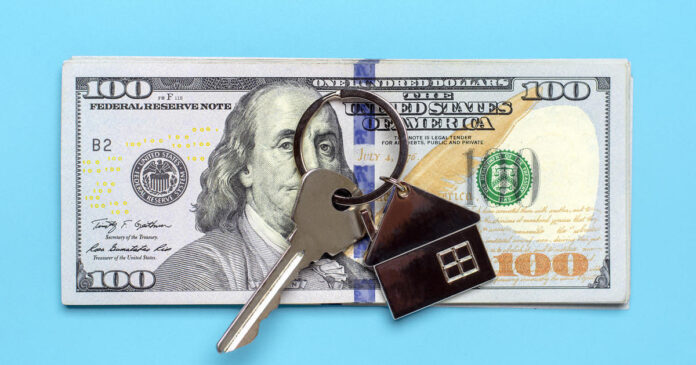Getty Images
The economy has been somewhat of a mixed bag recently. Some have struggled to keep up with high inflation and high interest rates, while others have benefitted from a rising stock market and real estate prices.
If you’re someone who hasn’t been able to keep up with bills or who simply wants to take advantage of higher home values without having to move, you might consider accessing your home equity via a reverse mortgage.
With a reverse mortgage, you can receive cash from your home’s equity without having to pay back the loan right away — often until you move, though you should look into the details to make sure you understand what you’re getting into.
However, a reverse mortgage is typically reserved for seniors. So can you get a reverse mortgage if you’re under the age of 62? Here’s what to know.
Explore the reverse mortgage rates you may qualify for online here.
Can you get a reverse mortgage if you’re younger than 62?
Most reverse mortgage age requirements include that the borrower is at least 62 years old. But this reverse mortgage age limit applies to federal loans.
“The predominant reverse mortgage program, the Federal Housing Administration (FHA) Home Equity Conversion Mortgage (HECM) program, requires borrowers to be 62 years of age. FHA-insured HECMs make up about 90%+ of the reverse mortgage market today,” says Jim Milano, member, McGlinchey Stafford.
In some limited cases, however, it’s possible to get a reverse mortgage before age 62.
Find out more about the benefits of considering a reverse mortgage loan.
Getting a private reverse mortgage before age 62
One way to qualify for a reverse mortgage before age 62 is to use a privately insured reverse mortgage program in some states.
“Under those programs, lenders must follow any applicable state law on age restrictions for reverse mortgages, and a few states, but not all states, have such requirements,” says Milano.
Depending on those rules, you might be eligible for a reverse mortgage sooner, based on what private lenders set for reverse mortgage eligibility.
“For states without a reverse mortgage age limit, I understand that lenders making private reverse mortgage loans will offer such a reverse mortgage to borrowers who are 55 years of age or above,” says Milano.
Qualifying before age 62 as a spouse
Another way to get a reverse mortgage if you’re younger than age 62 is to be the spouse of someone who does meet this age requirement, even if filing for a federally insured reverse mortgage. Yet, this wouldn’t be the same as qualifying for a reverse mortgage on your own.
“In the case of joint ownership, only one owner has to be over 62 years old. The owner under 62 can be on the loan but cannot access the equity or take advances on the reverse mortgage,” says Michelle White, national mortgage expert, The CE Shop.
Other home equity alternatives to consider
While there are limited options for getting a reverse mortgage before age 62, there are several ways to access your home equity earlier. Sometimes these alternatives can resemble reverse mortgages, where you give up equity in your home but can still live there.
For example, you might sell your home to a close friend or family member while still living in the home, says White.
Also, consider consulting “an estate planner or attorney to discuss the option of a life estate. This would transfer ownership but allow the homeowner to live in the property as a life tenant for the remainder of their life, with some limitations,” White adds.
Or you might choose more traditional home equity financing that typically requires repayment along the way, rather than letting you wait until you move.
“Alternatives to consider for those ineligible for a reverse mortgage before age 62 include exploring personal loans, cash-out refinancing, or discussing potential options with a financial advisor to find the best fit for their situation,” says Christina McCollum, producing market leader, Churchill Mortgage.
However, none of these options “offers the differed monthly payment like a reverse mortgage would,” McCollum adds.
The bottom line
Getting a reverse mortgage before age 62 typically only occurs in limited circumstances, such as when going through a private lender in some states. If you’re not eligible for a reverse mortgage, however, you still can tap into your home equity such as through a home equity loan or home equity line of credit (HELOC).




